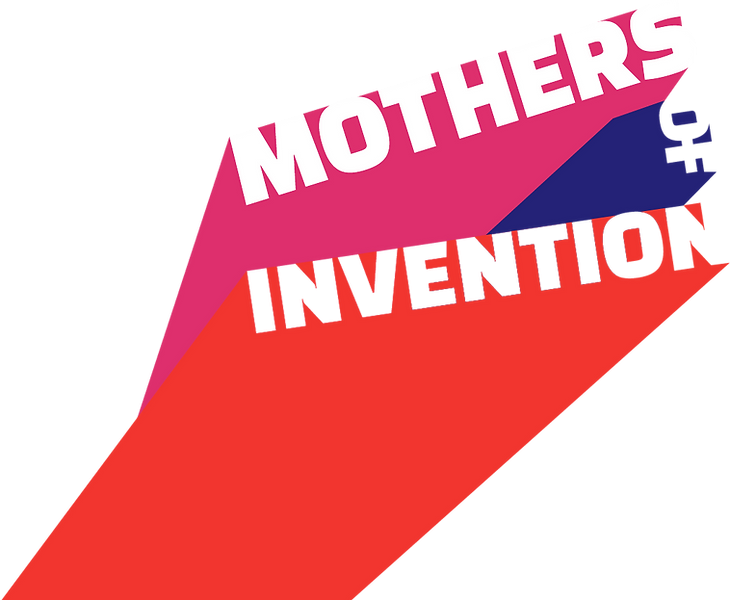How a Podcast and the Funders Behind It Are Shaking Up Climate Communication
By Tate Williams
“Mothers of Invention” is a decidedly different kind of climate communications effort.
The fact that it’s a podcast dedicated to climate change already makes it one of not many (I also like “Climate One” and “Think 100%”). It’s hosted by two women, a former head of state and a comedian. And it profiles women, almost exclusively, telling compelling climate justice stories about people on the ground responding to the crisis.
Oh, and one other thing—it’s funny.

If you can’t tell, I really like this show, and I think it succeeds where a lot of climate change media struggles—it’s simultaneously entertaining, hopeful and foreboding. But this isn’t Inside Podcasts, so why are we talking about “Mothers of Invention?”
Well, it also a great example of how even modest philanthropy can be a force for experimentation in the way we talk about climate change, and how we get people engaged in an issue that can be abstract and panic-inducing. It’s also a good case study of donors elevating marginalized voices that are maddeningly left out of mainstream storytelling and decision-making.
The podcast was seeded by one foundation during a lengthy and uncertain development stage, then another kicked in, and a crowdfunding campaign began partially sustaining it as the show picked up new donors and grants. They’ve now had a few hundred thousand listens and 50,000 subscribers, and a second season is in the works.
“Mothers of Invention” is a project of Doc Society, a London-based nonprofit that specializes in cause-related documentary films, and is a grantee of the Compton Foundation. Compton is a small San Francisco-based funder with one focus area being climate change, and a strategic niche in storytelling. We’ve covered its work before, including some cool art projects around COP21. I’ve always liked the foundation’s unique approach to climate philanthropy, which looks past the usual suspects and strategies.
So Doc Society was having a casual conversation with Compton’s executive director Ellen Friedman about trying out new storytelling strategies, and floated a possible climate justice podcast with Mary Robinson, former president of Ireland and climate activist. Compton gave them $50,000 to pursue the idea and create a pilot. It was the first time the foundation had funded a podcast.
“A really important role for philanthropic resources is experimentation, and especially in the creativity space and the communications space,” Friedman says. “We have to figure out alternative strategies to get the stories out.”
They didn’t have much to go on at that point, and it took six months of meeting with over a dozen possible co-hosts before finding Maeve Higgins, Irish comedian and writer currently living in New York (she was eight when Robinson was president). The two had great chemistry, and based on a pilot, Compton supplied another $50,000.
“They totally championed the project and also helped us to reach out to other funders,” says Jess Search, chief executive of Doc Society.
The team developed a show in which Higgins and Robinson mix disarming banter with story-driven and solutions-based analysis of climate justice issues from the perspectives of women working on climate solutions. The tagline: “Climate change is a man-made problem with a feminist solution.”
They’ve featured activists from Black Lives Matter and indigenous communities, human rights lawyers, politicians, entrepreneurs and diplomats. There’s weighty analysis, but shows always center on the people involved. The result is a level of humanity and empathy that takes some of the edge off of the problem’s severity, and makes seemingly radical solutions approachable.
Since Compton’s early funding, Wallace Global Fund came in with a grant of $20,000. WGF is a small, progressive foundation that challenges corporate power, threats to democracy, and climate change, and has been instrumental in the fossil fuel divestment movement.
The program went on to start a crowdfunding campaign on Drip, a platform on Kickstarter that provides ongoing support to creative projects. That brings in a modest amount of monthly income.
“Mothers of Invention” picked up some new institutional funders, too. European Climate Foundation donated £20,000 and offered consulting from former BBC journalist and climate communicator Ed King. The Children’s Investment Fund Foundation (CIFF) gave £50,000 from its climate program. And the program just finalized a grant of $100,000 from the Climate Justice Resilience Fund, which will get them started on season two.
You can see why funders have been drawn to the show, and it fits two powerful roles for philanthropy—experimentation and elevating voices from outside the mainstream.
On the first point, climate communication—and how we get the public to engage on this huge, overwhelming problem—is something we’ve not really figured out, and it’s critical. Podcasting’s bite-sized, intimate approach could be a larger tool for making those connections, and grantmaking allowed a documentary film producer to try it out in a unique way.
The project is also giving voice to people who are not often handed a microphone in the climate discussion. Sure, you might read a snippet about solar power in Africa, but I had certainly never heard directly from women in Nigeria working on community-level solutions. For many of the guests, the podcast offers their first international platform. It’s the kind of storytelling you likely won’t see on CNN, and something philanthropy can support.
“One of our primary goals is to build broad-based understanding about the impact of climate change on communities, and that there are solutions, that people don’t get paralyzed by how terrible climate change is,” says Ellen Friedman of the Compton Foundation.
“They can see that ordinary people around the world, in all kinds of different situations are responding to climate change in the ways that make sense to their communities.”
You can listen to “Mothers of Invention” on iTunes, Stitcher, or anywhere else you get podcasts.
Written by Tate Williams, and originally published on Inside Philanthropy.